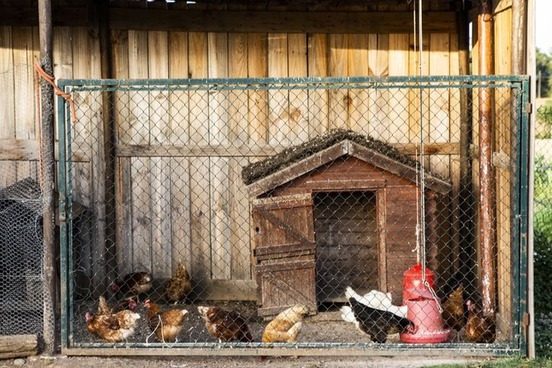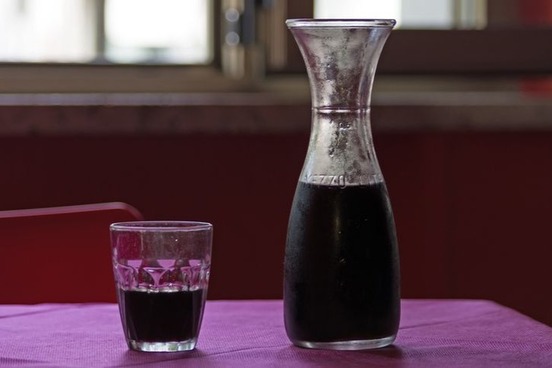
Hypnagogic
Note: This is a sequel to this list, which also happens to be full of rare, delightful words to incorporate into your repertoire.
adjective : of, relating to, or occurring in the period of drowsiness immediately preceding sleep
While those of us who are distracted by words during the period of drowsiness immediately preceding sleep do not necessarily wish the same fate on those who are spared such things, we see no reason to go on as though there is no term to describe the hypnagogic realm, and if you recall this word just as you're dropping off, well, so be it.
Hypnagogic (also spelled hypnogogic) is of 19th century vintage. It's from French, which got it from Greek: hypn- means "sleep," and -agōgos means "inducing, leading."

Slugabed
noun : a person who stays in bed after the usual or proper time to get up
Deep into the tragic part of Shakespeare's very tragic "Romeo and Juliet" Juliet's nurse calls Juliet a slugabed before she realizes that the poor girl is actually a deadabed. (Note: We have no evidence of deadabed in use; we just made it up. Sick-abed is, however, a word in good standing. It means "confined to bed by illness.")
The slug in slugabed is the same slug in sluggard ("a habitually lazy person"), and slugabed can in fact be used broadly to mean "sluggard" as well. If slugabed is too harsh for your taste, you can also refer to that still-sleeping roommate/teenager/partner/spouse with the term lie-abed, which is defined with the somewhat more neutral "one given to rising late."

Backlotter
noun : one who raises poultry or rabbits on a small lot, usually a back lot
Maybe you know a backlotter. Maybe you are one. It's highly likely you've at least read about backlotters, though probably not with the term backlotter in the text. We don't know why backlotter and its variant backyarder have mostly failed to make it into the conversations about urban farming and urban homesteading that have been happening in recent decades, but we're pointing the terms out so that you, dear reader, can remedy the situation.
Backlotter dates to the early 20th century and proved its usefulness especially during World War I. It can also refer to someone who does small-scale animal breeding.

Pilule
noun : a little pill
One might assert that the quality of a language is appropriately judged by how efficiently it facilitates specificity. Those who make such assertions would do well to incorporate the word pilule into their vocabulary. Why say "little pill" when you can say "pilule"? Why indeed.
Pilule dates to the mid-16th century and is ultimately from Latin pilula, meaning "pill" (of any size).
We have no evidence of pilule referring to a diminutive pill of the "disagreeable or tiresome person" variety, but that doesn't mean you can't take it there. Note that the adjective pilular is also available to you when you want a word that means specifically "of, relating to, or resembling a pill," as in "a pilular shape/client."

Apiculate
adjective : ending abruptly in a small distinct point
Botanists know the value in apiculate but the rest of us carry on as though a speaker confronted with a hat or shoe or stiff peak of meringue ending abruptly in a small distinct point should be satisfied with having only the vague descriptor of "pointy" at their disposal. Enough. Apiculate has been a member of the English language for over 200 years and can carry far more of the lexical burden than it has up to now. It is, of course, Latin in origin: apiculus is the diminutive of apic- and apex, meaning "tip."

Bedward
adverb : toward bed
What a ludicrous state of affairs when there is a perfectly succinct and scrutable term to describe an action regularly undertaken by all the speakers of a language that yet goes unused. Parents, you especially need to take some responsibility here: send your children bedward, for the love of all that is lexical. Note that you can also use the word with its obsolete meaning of "towards bedtime," as in "It's getting bedward, darlings—time to brush teeth," if you wish. It'd be better than the woeful bedward-less world we're suffering in now.
Also: let no one be surprised that bedwards is an acceptable variant.

Miscook
verb : to ruin in cooking
We're not saying you do it; we're saying it happens and no one is using this word for it, is all.
Ok, that's not quite true. Miscook is used. Rarely. Meanwhile burgers are miscooked a gazillion times. Every. Single. Day.
The Scottish as per usual are using the language to greater effect than the rest of us: they also use miscook to mean "to manage badly" or "to spoil."

Ullage
noun : the amount that a container (such as a tank or cask) lacks of being full
Ullage may be familiar to those who know that the amount of not-wine in a wine bottle says something about the quality of not-not-wine in that same wine bottle, but ullage is a part of life for everyone while the word that refers to it is not.
It's been there, waiting for you, since the 15th century: the ullage of your car's gas tank; the ullage of a shampoo bottle. When you are assessing the need for a new bottle of ketchup, it is, in fact, the ullage you consider. May we humbly suggest you describe it thus.
Note that ullage, being essentially about lack, has a related adjective: ullaged means "short of the full measure of its contents."

Logomachist
noun : one given to disputes over or about words : one given to logomachy
Oh, let us not be logomachists! Or logomachs, which are the same thing.
No, let us turn away from logomachy (i.e. disputes over or about words, or controversies marked by verbiage (i.e. lots of words that aren't clear or don't mean much))!
They're useful terms: logomachist and the synonymous logomach refer to someone who argues about words, and logomachy refers to what those folks are about. The set is Greek in origin, from the log- meaning "word" that is also found in neologism, and machesthai, meaning "to fight." We introduce them here not to advocate for their referents, but for the sake of the words themselves. We are, after all, (word) lovers not fighters. We only want you to be too.





